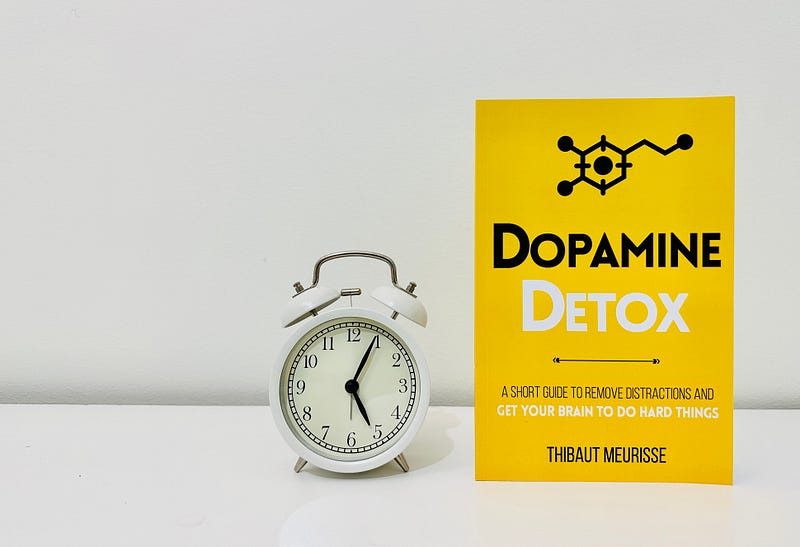Understanding the Dopamine Crisis: A Deep Dive into Detoxing
Written on
Chapter 1: The Dopamine Dilemma
In this week's exploration, I discovered that we are currently facing a "Dopamine Crisis," which necessitates a reassessment of our dopamine levels. This insight emerged from my reading of Dopamine Detox by Thibaut Meurisse.

Photograph by Wahid Sadiq on Unsplash
Dopamine is the chemical responsible for our feelings of pleasure. It is released when we indulge in sugary treats, scroll through social media, or check our notifications. Our dopamine levels fluctuate constantly, but in today's tech-driven environment, we are bombarded with excessive dopamine stimulation. This influx shifts our baseline, requiring more intense experiences to achieve the same satisfaction we previously enjoyed.
As a result, activities that once brought us joy—like reading—may now seem mundane compared to the thrill of social media engagement.
Section 1.1: Thibaut Meurisse’s Proposal
What does Thibaut suggest we do to combat this issue? He advocates for "Dopamine Detoxes." These detoxes involve periods where we abstain from all sources of dopamine stimulation. This trend has garnered mixed reviews; some find it beneficial, while others dismiss it as a futile exercise.
The core idea is to establish a timeframe for the detox. Thibaut recommends durations such as 48 hours, 24 hours, or even targeting a specific habit. I've encountered detoxes that extend up to seven days. Importantly, these are not intended as long-term lifestyle changes but rather as temporary resets aimed at recalibrating our dopamine levels. During a detox, one should refrain from consuming junk food, using social media, engaging with notifications, or interacting with screens.
Subsection 1.1.1: Implementation Strategy
I plan to undertake 48-hour detoxes before entering a focused "Monk Mode" phase. This Monk Mode typically lasts between 21 to 90 days and involves adhering to strict guidelines to enhance productivity. My first detox is scheduled for January 1, 2024!
Section 1.2: The Broader Implications of Distraction
Thibaut also highlights that our rampant distractions are eroding our capacity for long-term planning, maintaining good health, sustaining motivation, and cultivating a strong will. He advises against beginning the day with open tasks, such as checking emails, as this can drain our energy. Instead, he recommends creating a structured plan and a to-do list the night before to stay organized and focused.
Although this book is concise, I highly recommend giving it a read. Thank you for your attention!
Chapter 2: Insights from Experts
In the video titled "Dopamine, Mental Illness, Addiction, and Breaking Bad Habits," Dr. Anna Lembke discusses the relationship between dopamine levels and mental health, emphasizing the importance of understanding our habits and cravings.
In another insightful discussion, "Anna Lembke On The Neuroscience of Addiction: Our Dopamine Nation," Dr. Lembke explores the neuroscience behind addiction and offers valuable perspectives on how we can better manage our dopamine-driven behaviors.